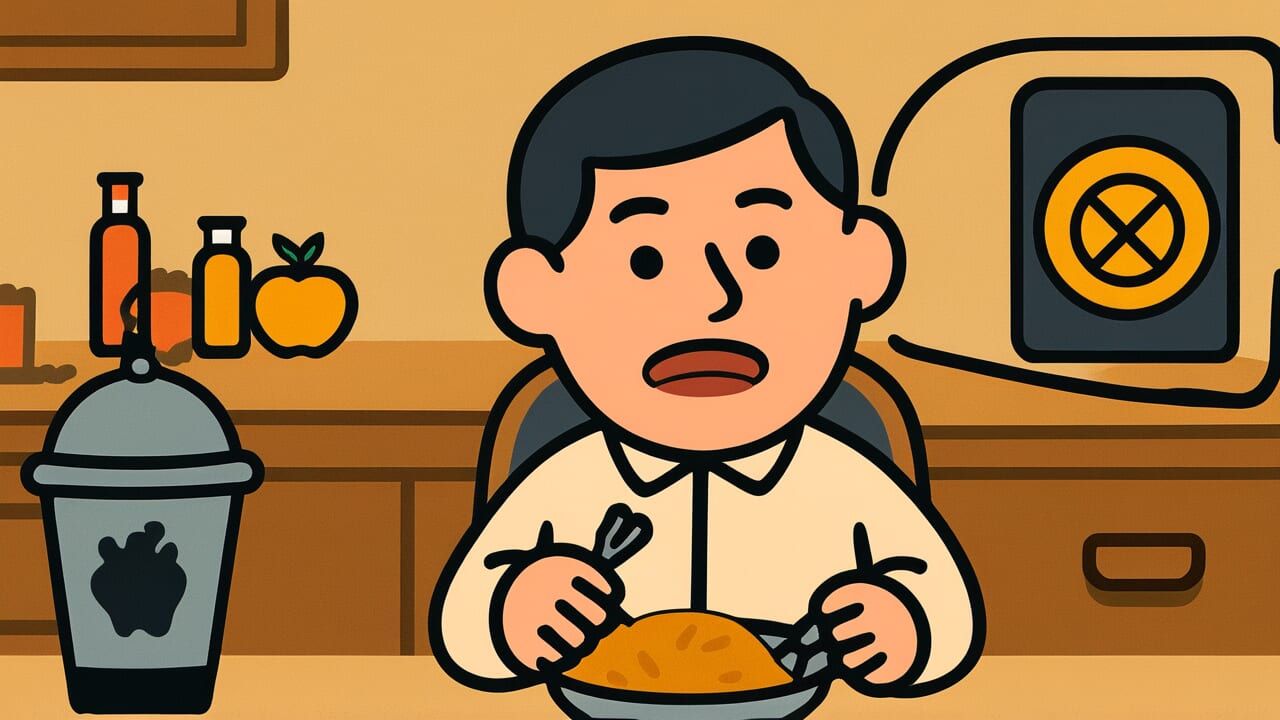How to Read “Those who do not work should not eat”
Hataraka-zaru mono kū-bekarazu
Meaning of “Those who do not work should not eat”
“Those who do not work should not eat” means that people who don’t work don’t deserve to eat. This isn’t just criticizing lazy people. It teaches the importance of earning your own living through your own labor.
This proverb warns against people who can work but choose not to. These people depend on the fruits of others’ labor instead. Eating is fundamental to living. But food comes from someone’s work.
That’s why everyone has a responsibility to work and contribute to society. This is the thinking behind the proverb.
Today, people use this saying when discussing the duty to work or the spirit of independence. However, it doesn’t exclude people who can’t work due to illness, disability, or old age.
The proverb only criticizes those who have the ability to work but refuse to do so.
Origin and Etymology
This proverb comes from the New Testament of the Bible. Specifically, it’s from the Second Letter to the Thessalonians. The passage says, “If anyone is not willing to work, let him not eat.”
The Apostle Paul wrote these words in a letter to an early Christian community. He was warning against people who refused to work and depended on others instead.
This idea came to Japan after the Meiji period with the arrival of Christianity. As the Meiji government pushed modernization, the spirit of hard work became increasingly valued.
The proverb was also quoted in socialist contexts. Lenin used similar words to explain the duty to work. This helped establish the saying as an important expression about work ethics in Japan.
What’s interesting is how this phrase evolved. It started as a religious teaching. But it eventually became a widely accepted secular work ethic.
The universal values of the dignity of work and the importance of independence resonated with people across different eras and ideologies.
Interesting Facts
This proverb was actually written into the Soviet Union’s constitution. It appeared as “He who does not work shall not eat.” In socialist states, all citizens were required to participate in labor.
This principle was established as law.
Article 27 of the Japanese Constitution states, “All people shall have the right and the obligation to work.” This positions labor as both a right and a duty.
This thinking connects to the spirit shown in this proverb.
Usage Examples
- They say those who do not work should not eat, so I should stop living off my parents and start earning my own money
- With the spirit of those who do not work should not eat, I want to continue working even after retirement
Universal Wisdom
This proverb has been passed down for so long because it captures a fundamental truth about human society. Since ancient times, humanity has survived because someone hunted, someone gathered berries, and someone tended the fire.
In communities, each person plays a role and supports one another. This interdependent relationship was humanity’s survival strategy.
But humans also have a desire to take it easy. Everyone has the temptation to eat without working, to freeload on others’ labor. If everyone gave in to that temptation, the community would collapse.
That’s why humanity has long created the norm of “those who do not work should not eat.”
This phrase contains humanity’s deep thirst for fairness. If you’re sweating and working hard, but someone else receives the same benefits without doing anything, that feels unfair.
This feeling is universal across cultures. This proverb has been passed down through the ages as wisdom for maintaining social justice.
When AI Hears This
The universe has an absolute law: “If left alone, everything becomes disordered.” Rooms get messy on their own. Buildings decay. This is the work of the second law of thermodynamics.
But living organisms are the exception. They maintain their bodies in an “ordered state.” This looks like a miracle that defies physical laws. But it’s actually achieved by taking in energy from outside.
Human body temperature stays around 36.5 degrees Celsius. Cells are constantly repaired. The brain continues complex thinking. Maintaining this order requires enormous energy. An adult consumes about 2000 kilocalories per day.
In other words, “eating” is refueling to resist entropy increase. Meanwhile, “working” is creating order in the world outside yourself. Tilling fields, making tools, organizing information. All of these locally decrease entropy.
What’s interesting is that this order-creating activity always comes with an energy cost. When you sweat doing farm work, chemical energy in your body dissipates as heat. Overall, the universe’s entropy increases.
So “only those who work have the right to eat” isn’t a moral claim. It’s stating the physical necessity of energy balance. You must replenish energy equal to the order you create.
Otherwise, the anti-entropy system called life collapses. This proverb expresses in one line the conditions for life to resist the thermal death of the universe.
Lessons for Today
What this proverb teaches modern people is the dignity of independence. Living by depending on someone else might seem easy at first glance. But earning with your own power and standing on your own feet has value beyond money.
It’s self-respect, freedom, and taking control of your life.
In modern society, ways of working have diversified. Being a company employee isn’t the only form of labor. Housework, childcare, nursing care, volunteer activities, creative work—you can contribute to society in many ways.
What matters is the attitude of trying to help someone with what you can do.
Also, this proverb teaches the balance between the right to receive and the responsibility to give. If you receive something from society, you should also provide something. This circulation is what makes a healthy society work.
When you work today, you’re not just supporting your future self. You’re also supporting society as a whole. Take pride in your labor and live positively.


Comments